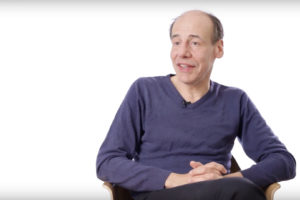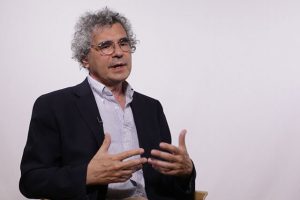Post-Truth
Philosopher and sociologist of science Steve Fuller on the blurred distinction between true and false, fake ne...
Why are authoritarian regimes less likely to democratize if the economic inequality is high? How much do people know about the levels of economic inequality in a country? Why do people misperceive the levels of economic inequality? These and other questions are answered by Professor of Political Science at the University of California, Los Angeles, Daniel Treisman.
There are many theories in economics and political science about why economic inequality matters, people have argued that it leads to a number of serious political consequences. For instance, when economic inequality is high, some people say that it makes revolution more likely, because the mass of the poor has a stronger incentive to rise up and expropriate the rich. There is also an argument that in democracies the higher is the level of economic inequality, the greater will be the demand by the majority for redistributive programs, for social policies, social programs that tax the rich in order to benefit the poor.
A large amount of evidence suggests that people really don’t know how high the level of inequality is. And if they don’t know it today when there are the most developed media, the most advanced statistical services that the world has ever had, it seemed to us unlikely that people has a much better information about this in the 19th century, for instance, when democratization was happening, when many revolutions occurred.
We also looked to see whether perceptions of inequality were related to these various things like revolutions and democratization. And, of course, we couldn’t test this as neatly as obviously one would like, but on the same surveys there were questions about whether people thought that there should be more redistribution by the government. It turned out that where people thought that economic inequality was high in the country, whether or not it actually was, and often it wasn’t, but when they thought it was high demand for redistribution was higher, when they thought it was low, demand for redistribution was lower. There was no correlation between the actual level of economic inequality and the demand for income redistribution.

Philosopher and sociologist of science Steve Fuller on the blurred distinction between true and false, fake ne...

Economist Deirdre McCloskey on fundamental human virtues, their secular interpretation and necessary applicati...

Philosopher Daniel Hausman on rationality, John Stuart Mill, and austerity